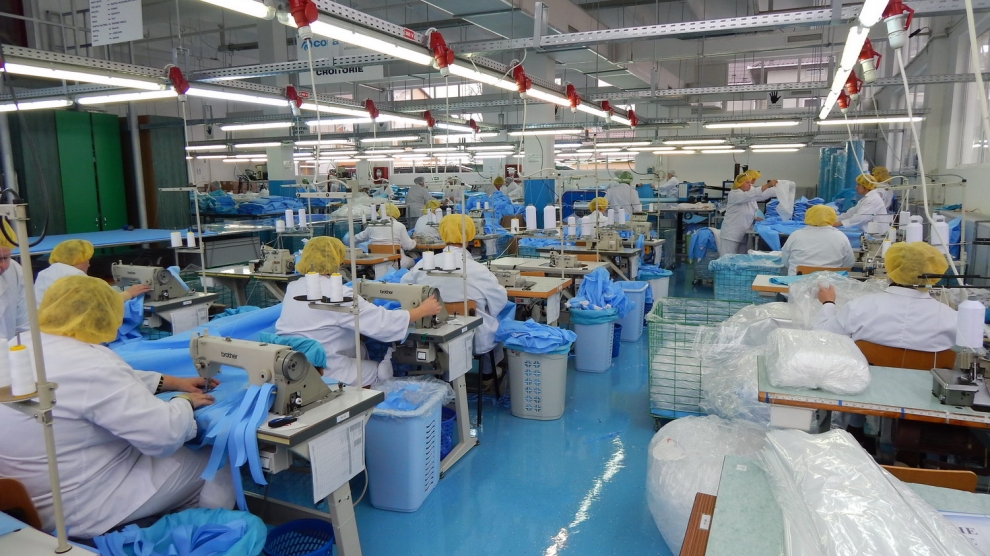A medical textile manufacturer such as Coramed Medizinische Produkte in the central Romanian county of Hunedoara would have attracted little attention a month ago, when the general public was more concerned with football results or the latest fashion trends.
However, the crisis created by the new coronavirus has rearranged priorities, and health has become the primary concern for all.
Coramed’s factory, in the small town of Călan, has 76 workers and since 2004 has manufactured clothing for medical purposes, for use in specialised areas such as operating theatres, outpatient units and intensive care. Among Coramed’s clients are large numbers of Romanian hospitals, for which it continues to produce medical clothing.
Until now, Coramed had not made surgical masks. However, so great is the need for masks in Romania and around the world that it has decided to reprofile part of its production line in order to make them, and already has orders for 200,000. It is currently waiting for delivery of the special filter fabric that provides surgical masks with the necessary safety levels for medical staff to use. The fabric should arrive this week.
“The three-layer mask we will produce is intended for medical use. We hope that this week we will be in possession of the filter fabric, which is very difficult to source,” Coramed’s director, Cosman Daniel, tells me.
“There are no stocks of raw materials, especially for special fabrics for medical purposes. In the past month stocks have disappeared, orders are paid for in advance, and you can lose out if you do not act within a few hours. All raw materials have doubled in price, as has the cost of transportation,” he adds.
Daniel says that he has been in permanent contact with Romania’s ministry of health even before the first case of Covid-19 was confirmed in the country, and that he was offered all necessary support, not least in quickly approving products for use in hospitals.
Even though many textile producers across Romania have re-profiled themselves as a crisis solution for the manufacture of surgical masks, these cannot immediately be used by hospitals and medical personnel. Daniel points out that there are certain mandatory standards that apply to medical products and that they need to be registered with the National Medical Agency.
“We cannot market non-compliant products, there is legislation in this regard,” he says.
Unfortunately, the shortage of masks is not only specific to Romania, or emerging Europe, but also to much better developed medical systems.
Coramed does not have automatic machines to make the masks. Daniel says that firms which have them can produce between 100 and 1,000 masks per minute, hence the low prices charged by those who own such machines. He says that Coramed tried to buy one, but high demand makes them inaccessible. “We have been struggling for two months to buy one, but no company can supply them anymore.”
Daniel adds that his firm will not earn anything from making the surgical masks. Instead, he says that he is driven by the motivation to help out.
“The attitude of the doctors and front line medical staff is to be commended. We are trying to find solutions for them. This is our impulse and motivation, to help and to tell people that, even with something seemingly small like surgical masks, we are trying to be with them.”
His message to those around him is to be responsible.
“Each one of us must make an effort to help in some way: we will produce as many masks as we can, others should stay at home!”
—
Photo: Coramed


Add Comment